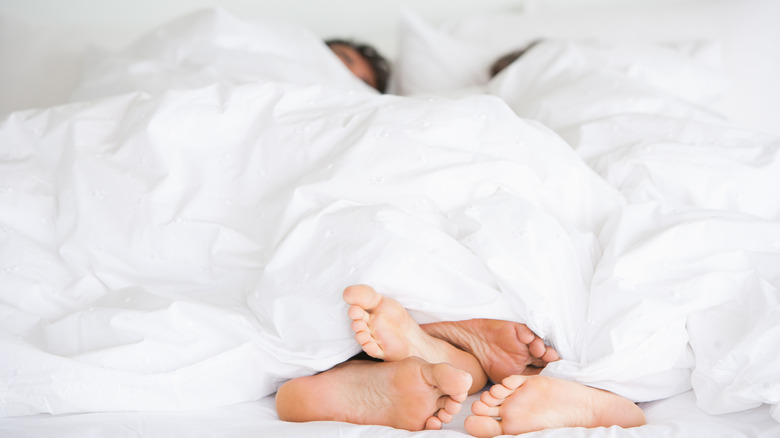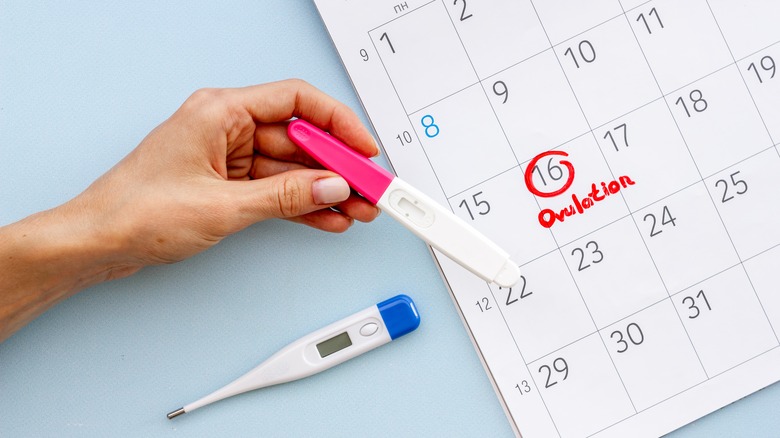How Ovulation Really Affects Your Libido
Whether you have spent your life tracking your periods or have just trusted your birth control and hoped for the best, you may not fully understand what ovulation actually is or what happens when you ovulate. According to Mayo Clinic, ovulation occurs when the "egg is released from the ovary" and begins to prepare for fertilization. And while ovulation is a super important bodily change that occurs every month, people often spend less time focusing on that and more time focusing on the actual menstruation.
But, if you are hoping to track your cycle or even just know more about your body and the reasons it changes, you're going to want to pay more attention. Ovulation usually occurs about 14 days before your period, give or take, but you can usually tell when it's coming if you pay attention. You may start to feel hungrier than usual or feel a sudden onset of energy, per Health. Physically, you may experience more discharge, bloating, tender breasts, and heightened body temperatures. One of the most common, and pleasant, symptoms of ovulation, though, is how it affects your libido.
The link between your sex drive and ovulation
There are a lot of things going on in a menstruating body. In order to prepare our bodies to release and possibly fertilize an egg, our hormones and bodies go through a ton of changes internally that affect us externally. Those external changes are said to be ways our body is letting others know we are ready to make a baby. According to Dr. Mary Jacobson, a board-certified OBGYN and chief medical officer at Alpha Medical, there are many reasons we may find ourselves having, or at least wanting, more sex during times of ovulation, via Bustle. While ovulating, our smells, and overall attractiveness are heightened, especially to our partners, making ovulating bodies more desirable. Ovulation also causes increased senses, making our sense of smell stronger, and even causes us to blush more, although this is likely not noticeable by you or your partner.
But the biggest correlation between ovulation and desire is our heightened sex drive. According to Natural Cycle, estrogen is responsible for our desire for sex. During ovulation, estrogen levels are higher, which in turn, makes you more in the mood. You may also feel a higher need for sex in the days leading up to ovulation, but don't let those feelings pass you by. As soon as ovulation begins, you may notice your sex drive dropping a ton, per Verywell Family.
Other reasons your libido may be stronger during your cycle
According to The Guardian, up until recently, there was so much left unknown about menstruating and the desire for sex. Other than the fact that many have lower libidos after menopause, it wasn't until a 2013 study, per ScienceDirect, that we began to truly understand how ovulation and menstruation affect our yearning for physical intimacy. The study proved that during ovulation, our libidos are high and our desire for sex is at its fullest. This makes sense when you consider that sex, at its core, is one path to pregnancy and ovulation is the time during a menstrual cycle when your body is ready to fertilize the egg.
According to Dr. Mary Jacobson via Bustle, everything from the desire to have sex to even smaller things like spending more time grooming yourself or your partner getting a bit clingy, are all ways your hormones are letting you know ovulation is happening.


